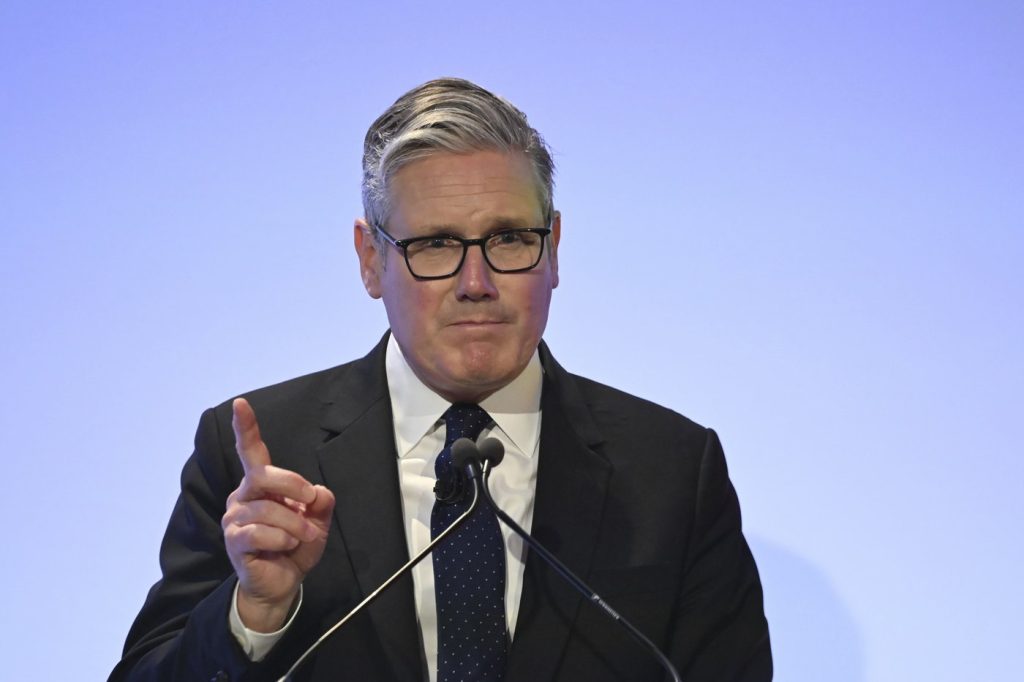LONDON (AP) – British Prime Minister Keir Starmer faced significant political backlash on Friday, prompting him to revise proposed welfare reforms to prevent a potential backlash from within his own party. This U-turn reflects the challenges faced by a center-left government attempting to balance budget cuts with the enhancement of public services amidst rising tensions within the ranks of the Labour Party.
The government had intended to introduce a bill in Parliament next week aimed at tightening eligibility for the Personal Independence Payment (PIP), a crucial disability benefit. This would have resulted in the removal of PIP from hundreds of thousands of individuals suffering from long-term physical or mental health conditions. Alongside this, another health-related benefit for low-income individuals was also set to be reduced.
Officials argued that these changes would support individuals in finding employment while ensuring a safety net for those unable to work. It was estimated that these reforms would save approximately 5 billion pounds ($7 billion) annually, a necessary move given the welfare expenditures that have surged since the COVID-19 pandemic.
However, these proposals were met with fierce resistance from many Labour lawmakers. The Institute for Fiscal Studies, a think tank, projected that the cuts could affect the income of about 3.2 million people by 2030. More than 120 of the 403 Labour legislators signed a motion that would terminate the bill if passed, which could have severely undermined Starmer's leadership.
In response to this internal dissent, the government guaranteed that current recipients of the PIP benefit would not lose their payments. This shift in strategy illustrates how Starmer’s government has been compelled to navigate complex political waters since his electoral victory a year ago, when he achieved a substantial majority in the House of Commons.
Since that victory, Starmer's popularity has diminished, primarily due to a sluggish economy and persistently high inflation that have thwarted efforts to improve living standards and alleviate the cost-of-living crisis. While Starmer has had notable successes on the international stage, including a well-received interaction with U.S. President Donald Trump and securing a trade agreement, Labour lawmakers have expressed frustrations over declining poll ratings and the emergence of the far-right Reform U.K. party led by Nigel Farage.
This recent U-turn is not an isolated incident. In May, Starmer’s government abandoned plans to cut winter heating subsidies for retirees, and last week, he announced a national inquiry into organized child sexual abuse, a decision many attributes to external pressure from opposition figures and notable public figures such as Elon Musk.
The government continues to assert that comprehensive welfare reforms are necessary to address what they describe as a "broken" system left by the previous Conservative administration. They contend that while spending will be reduced, it will be supplemented with new funding and support to help individuals who can work to secure jobs. The government aims to lower the number of economically inactive working-age individuals, currently estimated at 2.8 million, which is the highest rate among G7 nations.
During a NATO summit on Wednesday, Starmer initially dismissed concerns regarding the welfare proposals as insignificant. However, he quickly reassured party members the next day that he was attuned to the discontent within his party ranks. “All colleagues want to get this right, and so do I,” Starmer remarked, emphasizing the desire for reforms that align with Labour’s ideals of fairness. He expressed his commitment to continue dialogue with party members to facilitate meaningful change in the coming days.











